Blog by Umair Shahid, Marcel Kroese and Tom Pickerell
The state of tuna in the Indian Ocean is perilous, with three out of four commercial tuna stocks either overfished or worryingly close to that threshold. The Indian Ocean Tuna Commission will commence its 24th Session from 2-6 November 2020 by virtual conference. Because of the unusual circumstances of the meeting, the Heads of Delegations unanimously decided not to table any new conservation and management measures, including the Resolution 19/01 on the interim rebuilding plan for Indian Ocean yellowfin tuna, despite the stock being overfished and showing no signs of recovery. This is unacceptable. The governments responsible for managing shared stocks have a mandate to consider a conservation and management measure based on the recommendations and advice of the IOTC’s own Scientific Committee to achieve a 20% reduction compared to 2015 catches.
There is a dire need to engage in meaningful dialogues and coordination among fisher communities and governments, who must come together to reduce fishing pressure on yellowfin tuna and safeguard livelihoods and food security. Half of the yellowfin tuna caught in the Indian Ocean is from artisanal/small-scale fisheries, while the other half is from industrial fisheries. The majority of tuna caught from small-scale/artisanal fishery is for domestic consumption; only a small portion of those catches end up in lucrative markets. As such, by far the majority of the catch from industrial fisheries ends up as canned tuna in the EU and the UK, or sashimi in Japan and the United States.
The yellowfin stock is in trouble for a variety of reasons: an ineffective rebuilding plan failed to achieve the 20% reduction sought; non-compliance to existing interim measures by several fishing nations, which actually led to an increase in catches; the adoption of an ineffective FAD management plan that does not address juvenile mortality; the inclusion of an “exemption from catch reductions” clause within the rebuilding plan for some member states; the lack of harvest strategy that addresses multi-species problem; and the excessively long and exhausting time spent on what should be a routine matter to adopt such measures.
So, is it possible to rebuild the stock? What urgent measures are required? A collaborative approach and action by WWF and Global Tuna Alliance (GTA) urge the following:
- Adopt an overall catch reduction target of at least 25% (with WWF specifically requesting a 30% reduction) compared to 2017 catches to rebuild the Indian Ocean yellowfin tuna stock.
- WWF & GTA request Contracting Parties of IOTC to demonstrate leadership and commitment to sustainability by calling for a special session as early as possible in2021 to address the issue of overfishing of yellowfin tuna and developing a robust rebuilding plan.
- Restrict skipjack catches for 2018-2020 period at 470,000 tonnes and ensure fleets that over-catch ‘pay-back’ by applying HCR (extraordinary circumstances).
- Reduce the environmental impact of FADs through better FAD management, including mandating the use of electronic tracking of all FADs, non-entangling and biodegradable FADs, and mitigating impact on juvenile mortality of yellowfin tuna.
WWF and GTA call for this rigorous management because yellowfin tuna is vital for food security both inside and outside the region, and for economic development particularly of Indian Ocean coastal states. Leading by example, the Maldives demonstrated successfully how the reduction targets can be achieved by reducing their catches and must be congratulated. But we can’t wait for one state at a time to take action. Now the Maldivian IOTC delegate, and others, need to push for collective action by the Commission.
While our main focus is yellowfin, the recent over-catches of skipjack have pushed the stock precariously closed to an “overfished” status. This calls into question the effectiveness of its management and the commitment of the CPCs to adhere to any management practices.
The market cannot continue with the status quo and ever-increasing risk of stock collapse. The IOTC member states cannot put off action for another year while the sea is plundered. Instead, they must adopt ambitious measures contributing to fair, resource-efficient and resilient development; stop overfishing in the Indian Ocean; and act immediately to adopt a robust rebuilding plan for recovery of the yellowfin tuna stock. They must exercise precautionary management aimed at long-term sustainability ensuring food security and a resilient ecosystem.
Dr Tom Pickerell is Executive Director of the Global Tuna Alliance (GTA), Marcel Kroese, WWF Global Tuna Leader and Umair Shahid is WWF’s Indian Ocean Tuna Manager.
